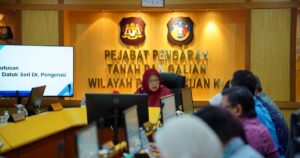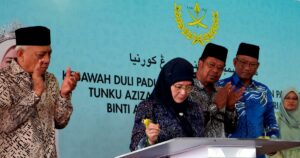Off-label drug prescriptions — where medications are used outside their approved indications, dosages, age groups or routes of administration — have become a significant issue in Malaysia’s healthcare landscape.
This practice raises legal, ethical and safety concerns for patients and practitioners.
Legal ambiguity continues to surround off-label prescriptions in Malaysia, with loopholes giving practitioners some leeway.
However, this flexibility raises ethical questions, particularly regarding patient safety.
Simply obtaining patient consent or informing them about the off-label nature of a prescription does not eliminate the risk of adverse drug reactions associated with such use.
The core issue is that legal or procedural compliance alone cannot protect patients from harm when clinical evidence is lacking for off-label use.
Off-label prescribing occurs when doctors prescribe a drug for a purpose, patient group or method not included in its official approval by regulatory bodies, such as Malaysia’s Drug Control Authority (DCA) or the US Food and Drug Administration.
For example, Methotrexate, originally approved for cancer, is sometimes prescribed off-label for psoriasis, potentially exposing patients to severe side effects not anticipated for their condition.
Studies indicate that off-label prescriptions may account for up to 50 per cent of all medication use, with particularly high rates in paediatric and geriatric populations.
In children, this practice is often driven by a lack of suitable paediatric formulations, insufficient clinical trial data and the absence of approved medications for certain conditions.
In Malaysia, common off-label prescriptions for children include anti-asthmatic and cough and cold medications.
The primary concern with off-label drug use is the risk of adverse drug reactions (ADRs), which can range from mild side effects to life-threatening complications.
Notable historical examples include the thalidomide tragedy of the 1950s, where off-label use in pregnant women led to thousands of birth defects.
Pharmacists play a critical role in monitoring and reporting suspected ADRs, while doctors are expected to be fully informed about any drug they prescribe off-label, basing their decisions on scientific evidence and clinical judgment.
In Malaysia, the Control of Drugs and Cosmetics Regulations 1984 mandates that all pharmaceutical products must be registered with the DCA, including details of intended use, dosage and target patient groups.
However, many drugs used in hospitals, especially for children, are either unlicensed for paediatric use or are prescribed off-label due to the exclusion of children from clinical trials during drug development.
This regulatory gap places the burden of responsibility on medical practitioners, who must carefully weigh the risks and benefits when considering off-label prescriptions.
The lack of clear legal guidance means that the practice is largely left to the discretion of individual doctors, with potential medico-legal implications if adverse outcomes occur.
The Patents Act 1983 should also support incremental innovations but with safeguards requiring full disclosure of clinical trial safety data.
Experts and researchers emphasise the urgent need for well-designed clinical studies on commonly prescribed off-label medications, especially in vulnerable groups like children and the elderly.
Enhanced monitoring, better practitioner education and clearer legal frameworks are essential to ensure patient safety and uphold ethical standards in medical practice.
As off-label prescribing continues to be a common, yet controversial, aspect of modern medicine, striking the right balance between innovation, patient safety and regulatory oversight remains a pressing challenge for the healthcare system.
* The writer is senior lecturer at the University of Wollongong Australia KDU University College Penang and holds a PHD in Patent Law: Pharmaceutical from (UKM)
© New Straits Times Press (M) Bhd






